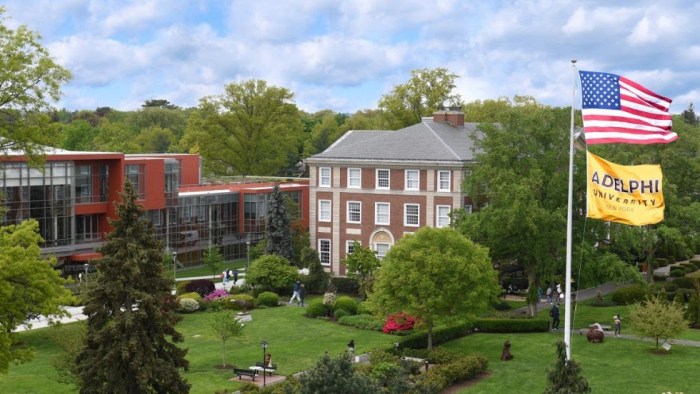Garden City Residents Will Get Hit, As Will Commercial Establishments
A newly approved fee schedule will affect residents and commercial establishments alike in Garden City, charging anywhere from $100 impound fees to $75 residential burglar alarm registration fees to $500 incident fees if a resident is found at fault for causing an accident on a public street or right of way or utility easement in the village.
After much discussion, trustees also unanimously approved three more local laws Sept. 10. One law amends the village code with regards to reimbursements and fees for emergency response actions.
Specifically, the law, which immediately took effect upon approval, reimburses the village for any expendable items “maintained or procured” by the village in connection with an emergency response to “prevent, contain, mitigate, clean up or remove” an oil or gas spill or a spill involving hazardous materials or for an electric or natural gas emergency on public streets, public right of ways or in utility easements only.
Materials, equipment or supplies used in the response by the village and/or the fire department that cannot be reused or replenished without cost include recovery drums, extinguishing agents, protective clothing, goggles and more.
In other words, if a village resident is involved in a car accident on a public street or right of way or in a utility easement and that resident is found to be at fault, he/she will be charged $500 for the incident alone and then $125 per half hour in excess of the first hour. Potentially, if the fire department is cleaning up a spill caused by a car accident for three hours, the responsible party – village resident or not – would be charged $1,000.
“If you’re a resident and your car breaks a gas tank on Nassau Boulevard, you’d probably get charged,” Mayor Robert Rothschild explained.
Kathleen Auro of Merillon Avenue isn’t pleased with the new law. “Isn’t that sort of like a double whammy? You could’ve wrecked your car and then get a $500 on top of it? That hurts … That really hurts.”
Christine Mullaney, a member of the Western Property Owners’ Association, agreed. “It’s a very bad way to raise money,” she told trustees.
This law does not affect residents on their private property.
Another law taking effect immediately involves sanitation fees for excess waste. This was a somewhat heated topic of discussion at the Aug. 13 board meeting and public hearing when the original proposal involved multi-family dwellings like the Wyndham, churches and non-profits.
After further debate, commercial establishments in the village are the entities affected by this law. “The intent of this amendment is to provide for fees for special sanitation removal for those commercial establishments which place an extraordinary demand on sanitation collection by an excess accumulation of waste,” the law reads.
It is important to note that an “excess accumulation of waste” is defined as collection of more than one one-and-a-half cubic yard container (dumpster) or 10 30-gallon acceptable waste containers or bags per week.
At first, this law was met with much criticism from those living in multiple dwellings who argued that rubbish collected from places like The Wyndham takes much less time when compared to garbage collected from single family homes.
Ray Carew, a 28-year resident of Garden City – the last seven years at The Wyndham, argued: “We’re talking about putting fees where trash is collected in a much faster amount of time. So for the village to consider imposing fees is absolutely ludicrous. It’s less time, less rubbish. It just doesn’t make much sense.”
William Keegan, a member of the board of directors at Hamilton Gardens, which is located on Second Street, added: “Multiple dwellings produce far less [garbage] than home dwellers,” he said.
According to the approved fee schedule, the commercial sanitation fee is $5 per excess pick up.
William Slattery of Kilburn Road questioned the low fee. “It seems so glaringly low. I’m not trying to penalize the businesses in our town. God knows we need them to help support our taxes. But I don’t want to see the residents share an undue burden, especially with all the fees for fire responders and the like. It just seems to be such a low number compared to the $500 and other fees being applied to residents,” Slattery said.
The village conducted a survey to conclude how many dumpsters each commercial establishment in the village used. If they didn’t use dumpsters, how many garbage cans used on a regular basis were then calculated. If they didn’t use garbage cans, the survey included the number of trash bags used that would be equivalent to a yard container, the mayor explained.
“We collect seven days a week,” Mayor Rothschild continued. For example, if an establishment used 10 dumpsters and the village collects garbage seven days a week, that totals 70 collections. The village then credited the establishment one collection, making the total now 69. Multiplied by the $5 excess pick up fee ($345) and then multiplied by 52 weeks in a year totals $17,940.
“This additional fee was probably the largest discussion we had at the budget sessions,” Mayor Rothschild said.
Trustee Dennis Donnelly, liaison to the business district, added that trustees did not want to greatly burden local businesses. “To put a much greater burden on the businesses in one fell swoop we felt wasn’t going to be a good idea,” Donnelly said. “We arrived at a number to generate revenue but not over penalize businesses.”
The third and final local law trustees unanimously approved Sept. 10 involves a code amendment in relation to license fees in certain parking lots, namely the Medical Center parking lot, Field No. 6 and the Fair Court parking area (all billed at $150 per year).
Pat DiMattia, president of the Central Property Owners’ Association, questioned whether or not the law amendments were cast in stone. “I hope we’re being prudent in what’s getting passed,” she said.
The mayor reiterated that these fees were ways in which the village could fill in gaps and revenue shortfalls during tough economic times. “The board of trustees has the right to change any time we want. We could leave a local law in place but make the fee zero,” the mayor said.
Tanners Pond Road resident Arnold Finnamore suggested the laws include a sunset. “They would only be in effect until the recession is over so we will not be encumbered on the board’s good judgment to rescind these at a later date or reduce them,” Finnamore said. “Make it so these laws need to be renewed annually or biannually or every three years so we have some assurance that these are not going to be perpetual taxes.”
Grove Street resident Bob Orosz, a regular critique of village government, added: “It just seems [that] every time there’s a problem here with finances it’s always the residents that have to dig deeper into their pockets.”
“And the village has to continue to supply services to the residents of this village…” Mayor Rothschild shot back. “If we cannot raise enough money to supply those services, then we’ll be cutting services. And from the feeling I’ve gotten, this board is not ready to do that…”
Trustee Nick Episcopia noted, too, the $100,000+ in village tax certiorari settlements and monies lost in pension plans because of decreased equity markets. “This is the reason why we’re doing some of these things…” he said.


































